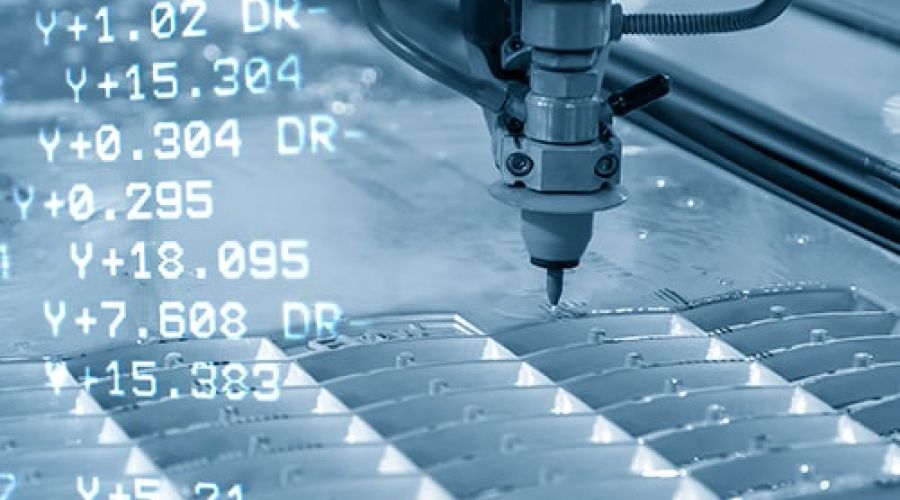
On the Concept of Industry 5.0: Towards a Harmonious Integration of Technology and Human Well-being
Industry 5.0 marks a shift from the automation and digitalization focus of Industry 4.0 to a more human-centric, sustainable, and resilient industrial approach. It places worker wellbeing at the heart of production, emphasizing technologies that create prosperity beyond mere growth while safeguarding the earth’s natural resources. By fostering circular production models and reducing resource consumption, Industry 5.0 enables industries to address global challenges like climate change and resource preservation. The PROSPECTS 5.0 project supports SMEs, start-ups, and scale-ups in adopting these principles, promoting a collaborative, sustainable, and human-centred industrial future across various sectors.
Industry 5.0 is revolutionizing diverse sectors by integrating its foundational principles of human-centricity, sustainability, and resiliency into various tasks and actions* . While the specific implementation may vary across industries like manufacturing, IT services, energy, and automotive, the core principles are universally applicable, creating a shared foundation for industrial transformation.
At the heart of Industry 5.0 is human-centricity, which emphasizes the well-being and empowerment of workers. In manufacturing, this is seen in the automation of physically demanding tasks. For example, TRYGONS’ use of AGVs for transporting heavy molds significantly reduces the physical strain on workers, improving their safety and job satisfaction. Similarly, in IT and education, human-centricity is promoted through tools like AI-powered learning platforms that provide personalized support to students, or virtual assistants in IT that handle routine administrative tasks, enabling workers to focus on more strategic and creative problem-solving without being replaced by automation.
In more high-risk industries like automotive and aviation, human-centricity takes the form of automating dangerous and repetitive tasks. AI-driven monitoring systems take over error-prone manual inspections, allowing workers to engage in more strategic, creative roles. PROSPECTS 5.0 supports these efforts by providing the framework for safer, more fulfilling workspaces and empowering employees through technology while maintaining operational efficiency.
Sustainability is another universal principle of Industry 5.0, focusing on reducing waste and conserving resources. In manufacturing, TRYGONS exemplifies sustainability by utilizing real-time monitoring systems to optimize gel coating** , reducing energy consumption and material waste. This is particularly crucial in resource-intensive sectors like automotive and aviation, where minimizing waste can lead to significant environmental and economic benefits.
In sectors like education and IT services, sustainability is achieved by adopting energyefficient technologies and reducing reliance on physical resources through digital solutions. Similarly, in the energy sector, AI-driven systems dynamically optimize energy consumption based on real-time data, reducing overall energy use and promoting environmentally responsible operations. These technologies demonstrate how sustainability can be pursued across industries, with each sector adopting practices to reduce their environmental footprint while improving operational efficiency. PROSPECTS 5.0 supports these efforts by providing tools and guidelines for sustainable transformation.
Resiliency is essential in today’s rapidly changing environment. For manufacturing SMEs, it is fostered through strategies like predictive maintenance and real-time monitoring, allowing businesses to anticipate failures and avoid costly downtime. In the automotive and energy sectors, resiliency involves rethinking value chains and optimizing energy consumption to better withstand external pressures, such as fluctuating resource availability or shifts in market demand.
Even in more service-oriented sectors like IT and education, resiliency is critical. By adopting cloud-based infrastructures and remote work capabilities, these industries ensure uninterrupted operations, even during unforeseen events like the COVID-19 pandemic* . Across all sectors, resiliency ensures companies remain adaptable and efficient against external challenges. PROSPECTS 5.0 helps organizations foster this adaptability by promoting solutions that ensure operational continuity.
In conclusion, while Industry 5.0 is applied differently across sectors, its core principles find universal applicability. PROSPECTS 5.0 illustrates how these principles can be adopted across industries, fostering a future where technology, people, and the environment are harmoniously integrated.
TRYGONS exemplifies the application of Industry 5.0 principles through its ongoing digital transformation, emphasizing sustainability, human-centricity, and resiliency. By adopting advanced automation technologies, such as AGVs for transporting heavy manufacturing molds, TRYGONS has not only streamlined operations but also significantly reduced the physical burden on its workforce. Additionally, real-time monitoring and data-driven optimization systems have been implemented to oversee complex processes like resin infusion and gel coating. These technologies enhance product quality and reduce material waste, promoting both sustainability and process resiliency.
TRYGONS’ focus on improving working conditions is reflected in its adoption of AI-driven systems to automate hazardous tasks, removing workers from harmful environments and allowing them to engage in more strategic roles. These innovations, aligned with the goals of PROSPECTS 5.0, reinforce the company’s commitment to a sustainable, human-centred manufacturing environment.
Industry 5.0 principles—human-centricity, sustainability, and resiliency—are vital for shaping the future of industry, ensuring that technological advancements prioritize worker well-being, environmental responsibility, and adaptability. The PROSPECTS 5.0 project has significantly contributed to advancing these ideas by demonstrating practical applications across various sectors, offering tools and guidelines to help businesses transition. As more industries adopt these principles, we can expect further innovations that enhance collaboration between humans and machines, reduce environmental impact, and build stronger, more adaptable systems. This evolution will drive industries to create more sustainable, efficient, and resilient practices, fostering long-term growth and societal benefit.
References
* Commission, European. https://research-and-innovation.ec.europa.eu/research-area/industrial-researchand-innovation/industry-50_en#what-is-industry-50. https://research-and-innovation.ec.europa.eu/. [Online] [Cited: 22 09 2024.]
** TRYGONS S.A. Youtube. [Online] 9 9 2024. https://www.youtube.com/watch?v=g2ho6tgjH34
Leave a Comment
You must be logged in to post a comment.